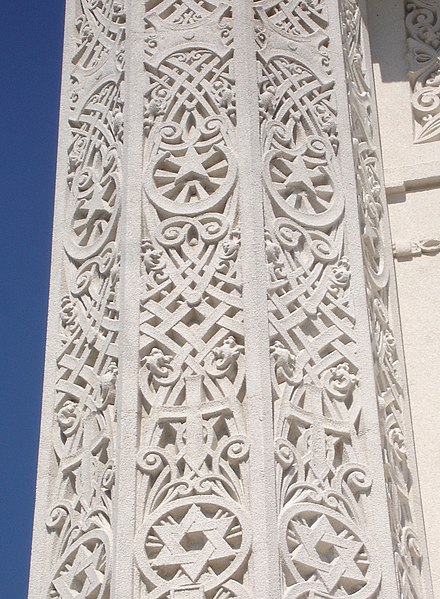Universal House of Justice
The Universal House of Justice is the nine-member supreme ruling body of the Baháʼí Faith. It was envisioned by Baháʼu'lláh, the founder of the Baháʼí Faith, as an institution that could legislate on issues not already addressed in the Baháʼí writings, providing flexibility for the Baháʼí Faith to adapt to changing conditions. It was first elected in 1963, and subsequently every five years, by delegates consisting of the members of Baháʼí National Spiritual Assemblies throughout the world.
Seat of the Universal House of Justice in Haifa, Israel
Seat of the Universal House of Justice
Seat of the Universal House of Justice
The Baháʼí Faith is a religion founded in the 19th century that teaches the essential worth of all religions and the unity of all people. Established by Baháʼu'lláh, it initially developed in Iran and parts of the Middle East, where it has faced ongoing persecution since its inception. The religion is estimated to have 5 to 8 million adherents, known as Baháʼís, spread throughout most of the world's countries and territories.
Seat of the Universal House of Justice, governing body of the Baháʼís, in Haifa, Israel
Baháʼí House of Worship in Ingleside, Sydney, Australia
Symbols of many religions on a pillar of the Baháʼí House of Worship in Wilmette, Illinois, U.S.
The Baháʼí gardens in Haifa, Israel






